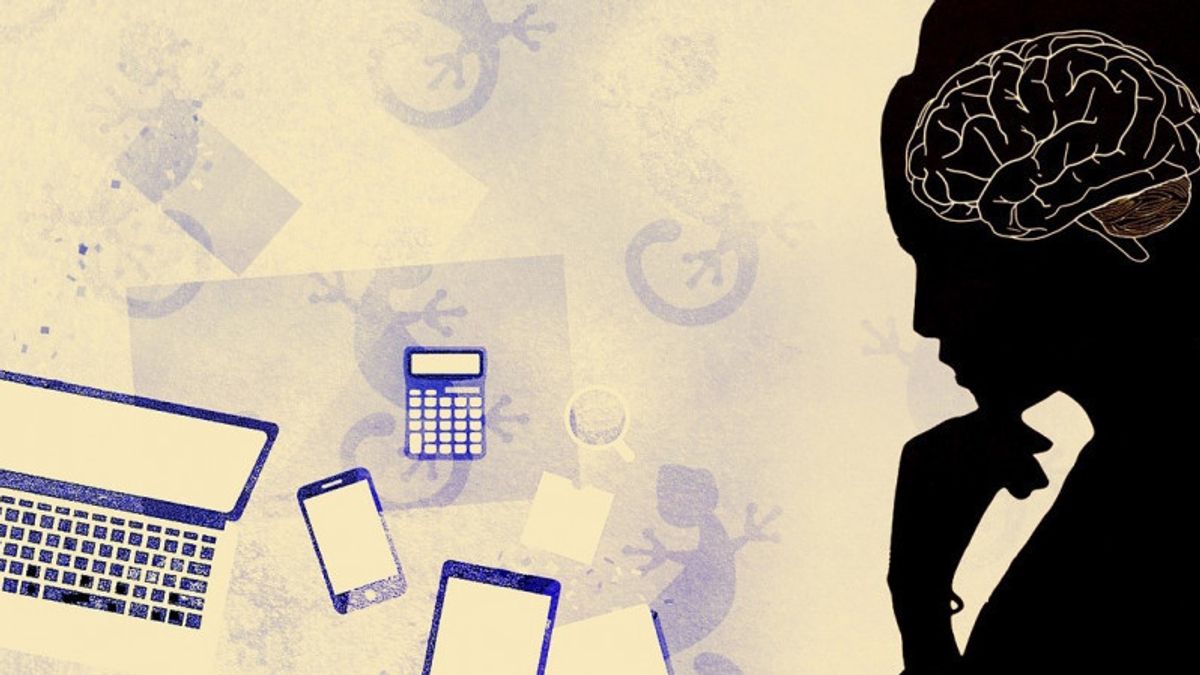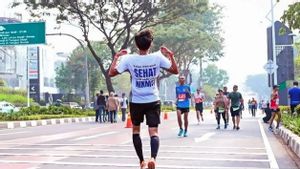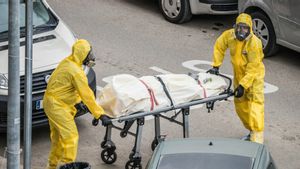JAKARTA - For some people, doing several activities or jobs at the same time which is often called multitasking has advantages, one of which is speeding up the completion of tasks.
For example, housewives without a household assistant. They can do various household chores at once, such as cooking while washing clothes, sweeping or working while taking care of children and others.
Indeed, the work feels faster to finish in a short time but on the other hand, multitasking is also bad for someone. Clinical psychologist from Gadjah Mada University (UGM) Pritta Tyas Mangestuti said they, especially mothers who have multitasking habits, can consume a lot of energy, causing fatigue.
"Multitasking consumes a lot of energy, makes us tired and can even lower our IQ if we multitask too often," he said in an online health event about children, quoted from Antara, Sunday, July 11.
In this time of the current COVID-19 pandemic, which requires most people to work from home (WFH), working mothers in particular, need to manage their energy. This is indeed a challenge in itself. On the one hand, mothers (who already have children) need to accompany their children, but on the other hand she has to work.
Even though it's a hassle, according to Pritta, mothers need to try not to multitask. He suggested that mothers set the time, for example every 07.00-07.30 to play with their children, then after that they did household or office work and other work.
The bad effects of multitasking have been shown by various studies. A 2008 study conducted by researchers from the University of Utah, United States found that a person may take longer to complete two tasks at once than to do them separately.
In the case of driving while chatting on a cell phone (not recommended as there is a risk of injury to you), the driver takes longer to reach their destination when chatting on a cell phone.
"What tends to save the most time is doing things in groups. Pay your bills at once, then send your emails at once," says Guy Winch, author of Emotional First Aid: Practical Strategies for Treating Failure, Rejection, Guilt and Other Everyday Psychological Injuries, as quoted from Health.
In addition, studies from the University of California Irvine show, there is a risk people link between stress and multitasking. According to researchers, employees who don't have access to work email do less multitasking and are less stressed about it. Meanwhile, employees who have access to work email and thus receive a stream of messages remain in constant high alert mode with higher heart rates.
Multitasking runs the risk of making someone lose something. A 2009 study from Western Washington University found that 75 percent of college students who walked across a campus square while talking on their cell phones didn't see a clown riding a unicycle nearby.
Researchers call this "accidental blindness". According to them, even though cell phone speakers are technically looking around them, nothing is actually recorded in their brains.
Another thing that is no less important, when doing two things at once for example reading a book interspersed with watching television, a person will miss important details of one or both of them. Interrupting one task to suddenly focus on another can be enough to disrupt short-term memory.
Multitasking requires a lot of what is known as working memory. When working memory runs out, it can take away a person's ability to think creatively, according to research from the University of Illinois at Chicago.
"Too much focus can actually impair performance on creative problem-solving tasks. With so much already going on in their heads, multitaskers often find it harder to daydream and produce spontaneous 'a ha moments'," the researchers said.
The English, Chinese, Japanese, Arabic, and French versions are automatically generated by the AI. So there may still be inaccuracies in translating, please always see Indonesian as our main language. (system supported by DigitalSiber.id)













